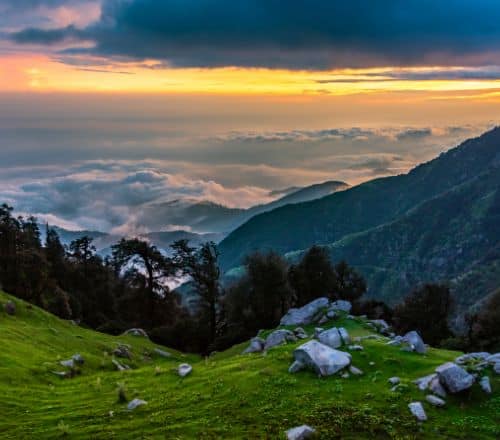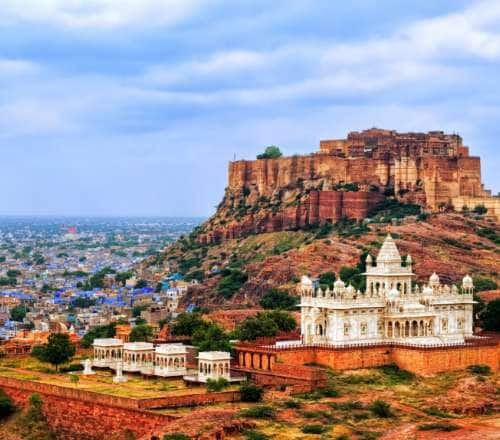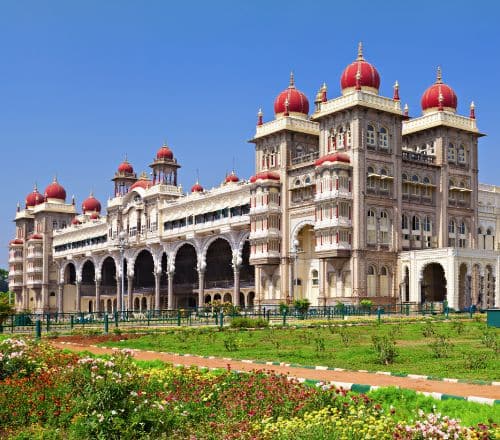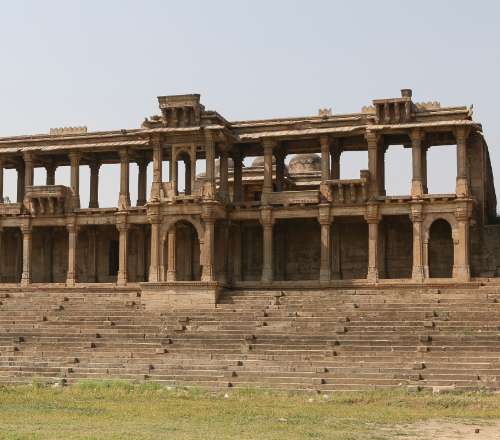Stay logged in to proceed with bookings, orders and offers.
On changing the terminal, you will loose items in your cart. Are you sure you want to change your terminal?
Start with these simple yet effective ideas for responsible tourism
Unless you are walking or cycling, travelling without leaving a carbon footprint is practically impossible. The reason is apparent - fuel consumption. But there are ways to travel sustainably! All it takes is a responsible mindset and the resilience to face minor logistical hiccups. To consider the world your home and deeply care about how climate change is unsettling its shaky foundation can be a conceptual change everyone can focus on. Such a shift in attitude can help go beyond the incremental, tokenistic initiatives that often fail to address the elephant in the room.
On my trips, I often see people wasting items essential to survival, like food and water, and spreading hazardous waste, such as plastic. Travelling is about new experiences, but is it worth harming the environment? This made me ask how hard it is to travel sustainably in India. To probe that thought further, I organised a full trip around sustainability.
I decided to explore Rishikesh and Mussoorie through my green trip. I chose these destinations randomly to check if responsible tourism can be achieved anywhere in India. And I am proud to say that apart from the flight emissions, my whole journey did not lead to any pollution. I concluded that be it any location, your mindful decisions towards sustainability matter more than anything else.
Read More
Read Less
Since I was travelling from Ahmedabad, I had to fly to Dehradun. From there I took a shared cab to Rishikesh. In my whole itinerary, if I could change something, I would have taken a bus from Dehradun to Rishikesh. But Dehradun airport is closer to Rishikesh and buses are not available from the airport. Hence a shared cab was my only option.
Trains emit the lowest level of greenhouse gases for medium to long-distance travel. As far as travelling across India is concerned, choosing to travel by train is the best option for the aforementioned distances. Short-haul flights have low fuel efficiency than long-haul flights. The math is simple. Flights would work great for long distances like from Kolkata to Trivandrum. But from Ahmedabad to Jaipur, trains would be more feasible and environment-friendly.
Buses are always better than cars because buses carry more people than cars and produce the same amount of carbon. My journey from Rishikesh became more eco-friendly as I took the bus to Mussoorie and back to Dehradun.
I made using public transport a thumb rule. Exploring by foot, renting cycles, and sharing cabs are great ideas for travelling locally. If you need to rent a car, you can go for an electric one if possible.
I like to travel on foot. Walking gives me a chance to observe the locals and their way of life so close to nature. While walking from Mussoorie to Landour, I noticed a shop which had reused plastic bottles and turned them into pots for plants.
I always take my reusable bottle with me on rides. Refilling them in India is quite easy since filtered water is available in most hotels, restaurants and even bus stands and airports. It makes me proud to say that I did not purchase a single plastic bottle during my trip.
Refilling saves approximately 20-25 plastic bottles that will otherwise end up in the trash. Carrying steel or bamboo straw, spoon and fork, and using them whenever necessary can reduce plastic waste. While ordering food or a drink, don't forget to tell the server not to give you any plastic cutlery.
During my trip, I googled and made a list of places with eco-friendly decor, restaurants serving organic food and cafes with sustainable themes. For example, in Rishikesh, I found a restaurant called Pure Soul Cafe and Organic Kitchen, where they serve food made from locally sourced ingredients and provide sustainable solutions like steel and bamboo cutlery and a no-paper menu and billing system. Eating at such places encourages individuals who work hard to keep environment safe.
And when indulging in street food, don't forget to use your wooden or steel spoon while encouraging others to follow. Small habitual changes can make a huge difference like eating ice cream in a cone rather than a cup, using your steel straw for coconut water, and carrying a steel container for the leftover food.
The steel straw in my backpack came in handy when I wanted coconut water. Saving a plastic straw bound to a dustbin doesn't make any difference. Sometimes people around might even laugh at you. But the statistics speak for themselves: 6 billion straws are used by beverage manufacturers in India annually.
Buy from traditional artisans, avoid plastic packaging, and check out eco-friendly boutiques, crafts bazaars and local markets.
I always travel with a foldable tote bag which doesn't take up a lot of space. Investing in such things can also be a great idea to adopt a sustainable lifestyle. While shopping for clothes, choose long-lasting materials such as jute or cotton and avoid synthetic fabrics.
This can be one of the biggest concerns while travelling sustainably but researching before booking would be a great idea. Check out hotel websites and see if they are taking any measures to reduce carbon emissions and control plastic waste. You can also look for homestays, boutique hotels or eco-friendly accommodations.
Pack your toiletries and avoid using the mini plastic bottle shampoos in the hotel rooms. They are free and tempting to use but the half-used bottles and soaps end up in the dustbins and create pollution. Also be mindful of simple things like not wasting water, reusing the towels and asking for a jug of water instead of using complementary plastic water bottles.
On my sustainable trip, I took care of these concerns and took my bamboo toothbrush and soap and shampoo bars along with me.
Visit farms and fruit markets to check out local produce. This will help you choose and eat right. Speak with the natives to know the place better. This understanding will make you respect their hometown and will give a reason as to why you shouldn't trash it.
From Mussoorie, I went to Sainji village, met the locals, learned about their culture, asked about volunteering options and also picked garbage thrown recklessly by a group of tourists.
Tourism has a positive effect on the economy but with the growing popularity of places, it is also creating negative ripples on the environment. Travellers with the tourism industry need to make conscious efforts for conserving energy and to help make the world a better place.
Would you like to be the one throwing away a plastic bottle or the one not using it at all? Remember, there is no planet B. So, the next time, you plan a vacation, try incorporating one or two of these greener habits because change happens when several imperfect environmentalists do at least one perfect thing.
Volunteering and taking part in the initiatives like clean-up or tree plantation drives can set out as a meaningful experience while travelling. Believe it or not, this makes a huge impact on the overall travel culture because mindful travelling leads to preserving places.





The Adani One expressly disclaims all liability, direct and indirect, in respect to actions taken or not taken based on any or all the contents of this Blog. The Blog is an opinion of the contributor based on the collation of data from various sources and is provided only for information purpose. Adani One does not canvass, advertise, solicit, invite or induct for any product, merchandise, information, brand or any other materials mentioned in the Blog, nor does it obtain any monetary benefit from the same. Reader is advised to read and apply his/her intellect and discretion in this regard. Any Intellectual Property mentioned in this blog belongs to the rightful owner. We do not intent to claim any interest over the same.